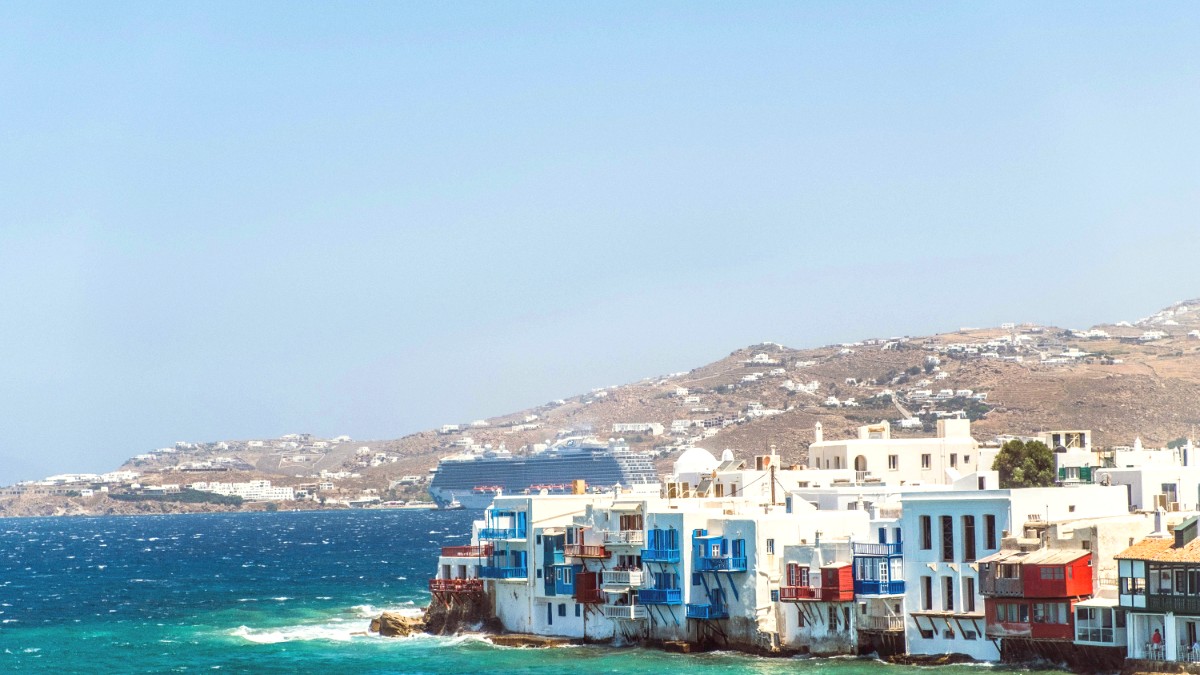
Cyclades, Greece
Mykonos lacks large, formally protected nature reserves on the island itself. However, efforts focus on safeguarding the marine ecosystems around its coast and nearby islands like Delos and Rhenia, designated as archaeological and natural sites. These areas strive to maintain biodiversity and historical integrity.
Waste management presents a famous challenge on Mykonos, especially during peak season when waste volume dramatically rises. Mykonos possesses limited natural freshwater sources, relying heavily on energy-intensive desalination plants for water supply. Mindful consumption is critical.
Air and ferry travel contribute to carbon emissions. When feasible, using public transport (buses) on the island instead of individual cars or ATVs decreases your carbon footprint. For long-haul flights, explore carbon offset programs offered by airlines or third-party organizations. Eco-friendly accommodation and tour operators prioritize sustainable practices.
Your presence on the island provides an opportunity for positive cultural exchange.
When shopping, choose products made by local artisans. This supports traditional skills and maintains cultural heritage. Seek out and support genuine Mykonian experiences, like visiting Ano Mera village, traditional tavernas, or local festivals, rather than only highly commercialized attractions. Be mindful of the local way of life, especially in non-touristy residential areas.
Observe modesty when visiting churches and monasteries. Shoulders and knees should remain covered for both men and women. Seek permission before photographing locals, especially in traditional settings. Avoid photography inside religious sites if prohibited. Be mindful of noise levels, especially in residential areas during traditional siesta hours (early afternoon) and late at night.
Your considerate actions and adherence to local customs foster a welcoming environment for all. Engaging with authentic experiences enriches your journey.
Your spending choices directly influence the local economy. Make choices that benefit the Mykonian community.
Prioritize small, local family-run businesses. Dine at traditional tavernas, purchase from local bakeries, rent from local car/scooter companies, and buy products from small, independent shops rather than international chains or large, anonymous businesses. This ensures that the money you spend circulates within the Mykonian economy.
Look for 'Made in Greece' labels when buying souvenirs or crafts. This verifies that products are genuinely local and that your purchase backs Greek producers and artisans. Avoid purchasing counterfeit goods. Avoid activities that exploit animals (e.g., donkey rides if animals appear mistreated or overworked). Do not contribute to any form of human trafficking or illegal activities.
Choose accommodations that are locally owned. This decision keeps revenue within the island's economy.
Where available, seek out fair trade products. This supports equitable practices for producers.
Utilize local laundry services, taxi drivers, and other small service providers. These choices strengthen the community's economy.
Your spending decisions wield positive influence on the Mykonian community. Consider G Adventures for ethical tours and The Rainforest Site for conservation support.